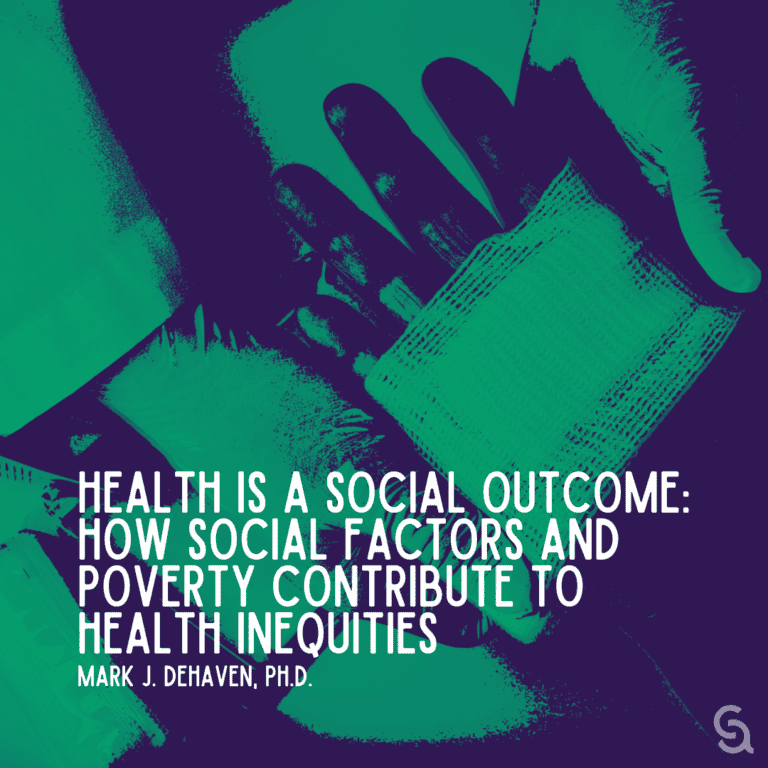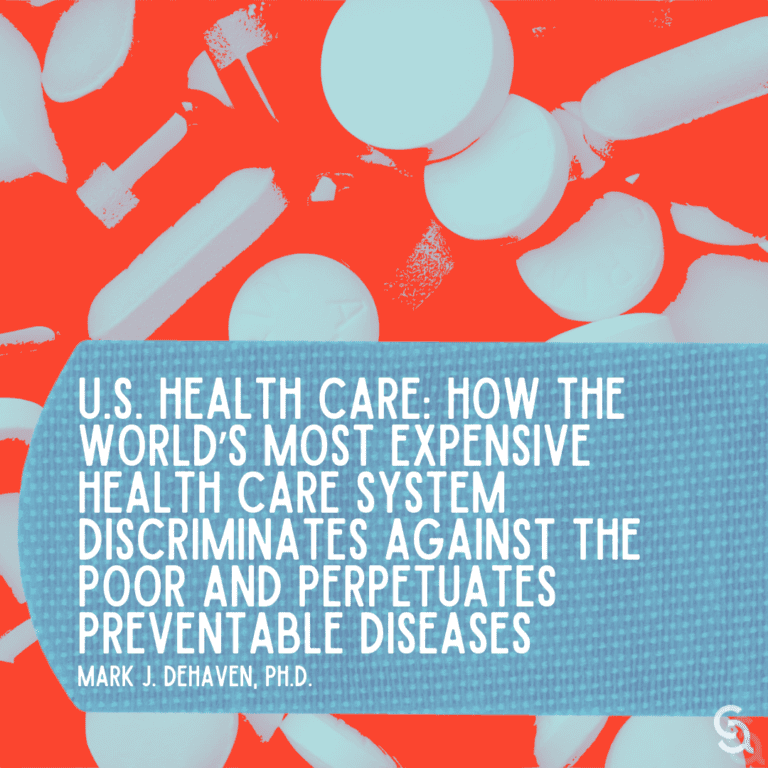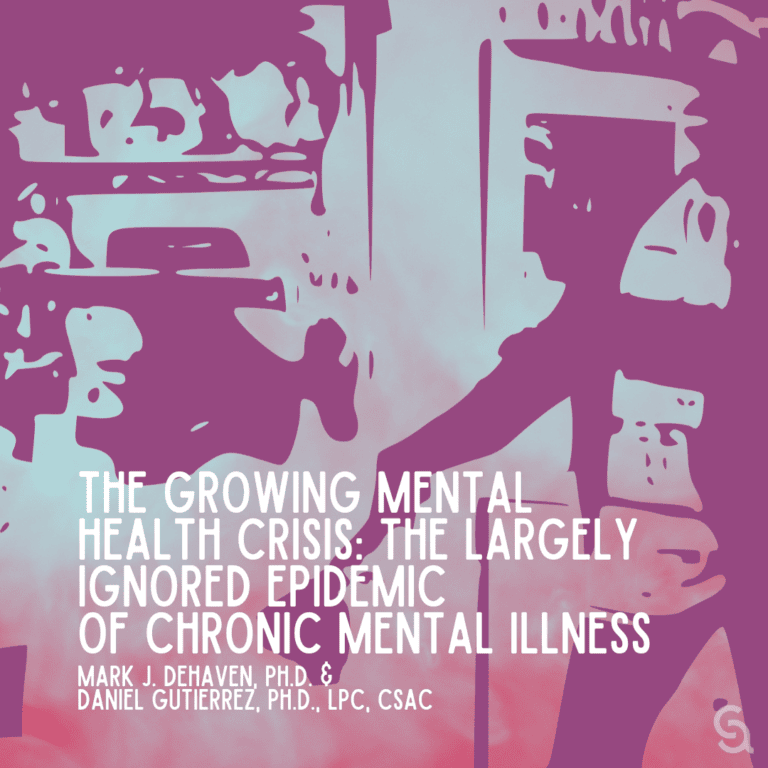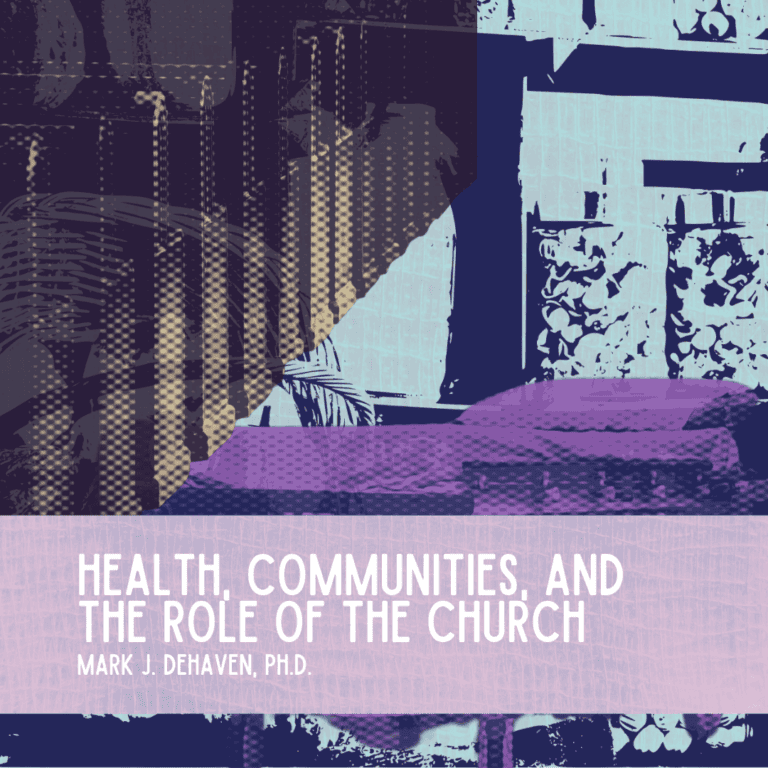Faith, Justice, and the Fight for Health: A Christian Response to America’s Health Care Crisis (A Four-Part Series)
What does it mean to love our neighbor when our neighbors are suffering from preventable illness, crushed by medical debt, or shut out of care altogether?
In this four-part series, Dr. Mark J. DeHaven—Distinguished Professor Emeritus of Public Health Sciences—invites readers to see health care through the lens of justice, faith, and equity. From the systemic roots of disease and despair to the mental health epidemic and the role of the church, this series is a call to action for Christians who want to put love into practice. Drawing on decades of experience and research, DeHaven argues that health is not just a medical issue—it’s a moral one. And the church has a vital role to play. DeHaven co-authors Part 3 of the series with Dr. Daniel Gutierrez, a counseling and mental health expert.
Part 1: Health Is a Social Outcome
How Social Factors and Poverty Contribute to Health Inequities
Health isn’t just about medical care—it’s about where we live, what we earn, and how we’re treated. In this opening article, Dr. DeHaven explains why social and economic conditions drive health outcomes far more than doctors or prescriptions. He explores the devastating impact of poverty, chronic stress, and neighborhood inequity on people’s bodies and lives, making a powerful case for why Christians must advocate for health justice. When we understand health as a shared social outcome, we begin to see it not only as a policy concern—but as a sacred calling. Read Part 1 >
Part 2: U.S. Health Care
How the World’s Most Expensive System Discriminates Against the Poor and Perpetuates Preventable Diseases
The U.S. spends more on health care than any other nation, yet delivers worse outcomes—especially for the poor. In Part 2, Dr. DeHaven dissects the moral failure of a profit-driven “sick care” system that prioritizes corporate gain over human well-being. He outlines how systemic barriers deny the working poor, racial minorities, and uninsured families access to basic care. With powerful data and prophetic urgency, this piece urges Christians to stand against exploitation in health care—and to remember that God does not measure justice in dollars, but in dignity. Read Part 2 >
Part 3: The Growing Mental Health Crisis
The Largely Ignored Epidemic of Chronic Mental Illness
America is in the grip of a mental health crisis—and our systems are failing to respond. Co-authored with Dr. Daniel Gutierrez, a counseling and mental health expert, this article exposes the scale of untreated mental illness, rising suicide rates, and emotional despair that now touch nearly every community. It also explores how isolation, stigma, and systemic neglect deepen suffering—especially among marginalized groups. Christians are called to be healing agents, not bystanders. This piece offers both conviction and hope: we must build communities of care that embody mercy, compassion, and mental health literacy. Read Part 3 >
Part 4: Health, Communities, and the Role of the Church
A Call to Christians to Promote Health Justice
The final article in the series turns to the Church. What can congregations do to promote health in their pews, neighborhoods, and policy conversations? Dr. DeHaven challenges Christians to see health as an expression of faith—both personal and communal. He offers practical ideas for congregational health ministries, partnerships with social services, and prophetic advocacy on behalf of the vulnerable. Rooted in Scripture and powered by love, this closing piece reminds us: the call to “heal the sick” is not metaphorical. It’s a mission we’re meant to live. Read Part 4 >
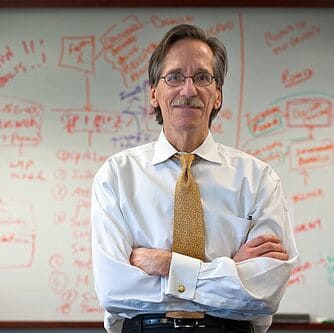
About the Key Author
Dr. Mark J. DeHaven is a Distinguished Professor Emeritus of Public Health Sciences at UNC Charlotte. A leader in community medicine, his NIH- and CDC-funded research has improved health outcomes in underserved populations. Previously, he founded community medicine and community health science divisions at UT Southwestern Medical Center at Dallas. Recognized globally, he helped develop sustainable health models in the U.S., Mexico, Peru, and China, bridging research and real-world impact.

